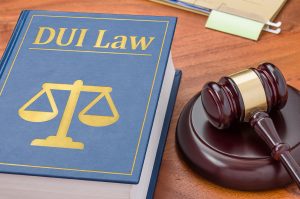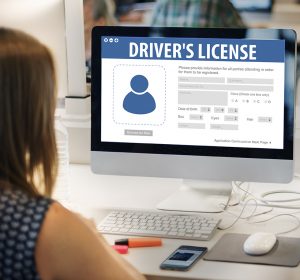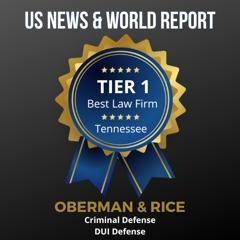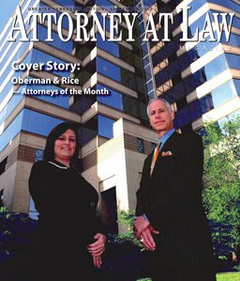Transcript of “Drunk Driving or Driving Under the Influence”
Author: Steven Oberman
Click here to listen to the podcast.
Originally Posted: February 23, 2011
We hear it all the time. It is illegal to drive under the influence of an intoxicant. But what does that mean in legal terms? This is your host, Steve Oberman, and today I will explain the term, “under the influence”.
As a very general summary, there are two ways a person may be considered “under the influence” when they are operating or are in physical control of a motor vehicle.
The first is while the person is under the influence of any intoxicant affecting the central nervous system that impairs the driver’s ability to safely operate a motor vehicle by depriving the driver of the clearness of mind and control of himself, which he would otherwise possess.
The intoxicants referred to in this law include, but are not limited to, alcohol, medication prescribed by your doctor, marijuana, other illegal drugs, or any combination of intoxicants.
Right now, let’s focus on this first method of violating the law. When considering whether someone is under the influence without a chemical test, the term ‘‘under the influence’’ is subject to interpretation. It is nothing more than a conclusion based upon the driving and physical observations of the suspect.
Field sobriety tests may assist the officer in determining whether the suspect is really under the influence, but I will save that topic for another podcast.
Legally speaking, under the influence may be a state or condition reached prior to becoming intoxicated, drunk, or partly drunk. So the term “drunk driving” is really a misnomer. In other words, being drunk is much more intoxicated than being under the influence. On the other hand, keep in mind, though, that the law does not prohibit drinking, then driving. Nor does the law prohibit driving an automobile with the odor of an intoxicant on the driver’s breath or person.
So what is the definition of under the influence?
T.C.A. § 55-10-401 is the statute, or the law passed by the legislature, relating to this crime. Prior to January 1, 2011, the law failed to define the phrase “under the influence of an intoxicant.” But the courts defined it. They ruled ‘‘under the influence’’ is the condition that exists when a person’s mental or physical abilities are impaired by reason of the consumption of an intoxicant. This phrase has also been defined as the impaired ability to operate an automobile in the manner in which an ordinarily reasonable and prudent person, in full possession of his faculties, would operate a motor vehicle under the same or substantially similar circumstances.
Then, in 2011, the legislature changed the wording of the DUI statute to include a definition for under the influence. As I stated earlier, it is now defined as, “the condition which impairs the driver’s ability to safely operate a motor vehicle by depriving the driver of the clearness of mind and control of himself which he would otherwise possess.”
It is difficult for the officer, or any person for that matter, to determine exactly if or when this condition occurs. The facts of a particular case must be carefully considered when making this determination. That’s why the lawyers at Oberman and Rice contest so many DUI cases. The officer’s opinion is often different than the opinion of the judge or jury.
Now, you may recall I stated that there were 2 ways to be considered under the influence, so allow me to briefly summarize the alternate method. The second way to violate this law is to operate or be in physical control of a motor vehicle while:
The alcohol concentration in the person’s blood or breath is eight-hundredths of one percent (that’s .08 %) or more. This means that even if you are not deprived of your normal ability to safely operate a motor vehicle, you may violate the law if your blood alcohol content exceeds the legal limit. This may occur with persons who have built up a high tolerance for alcohol.
This method is commonly referred to as the “per se” law. Think of it this way: If your blood or breath alcohol is above the legal limit while driving, you are automatically considered to be under the influence. But, that doesn’t mean you are automatically guilty. The prosecution may have difficulty introducing the blood or breath tests in evidence for a variety of reasons, or the officer may have violated the suspect’s constitutional rights. But I will save those topics for other podcasts as well.
Again, it is difficult for anyone to know when they have reached the legal limit of .08%. After one consumes alcohol, the concentration in the blood stream constantly changes for many hours until it is completely eliminated.
So, in conclusion, my advice to you is this: If you or someone you know is arrested for DUI, all is not lost. There is room for differences of opinions within the law. But, if want to reduce your chances of being arrested for the crime of Driving Under the Influence, don’t drink and drive. And don’t drive after consuming any drug or medication which may affect your ability to drive.
Until next time, this is your host, Steve Oberman, reminding you to drive safely.
We hope you enjoyed listening to the DUI law podcast1 produced by the Oberman and Rice Law Firm. You may read about related legal matter on our websites at https://www.tndui.com and https://www.duiknoxville.com or visit our blog at https://www.tnduicenter.com. You may also speak to one of our lawyers by calling (865) 249-7200. Until next time, remember to drive safely.
Portions of this podcast were taken from Mr. Oberman’s text, DUI: The Crime and Consequences, Published by West/Thomson Reuters, 2011.See https://www.tndui.com/oberman-dui-textbooks.php#tndui
Featured Posts

 April 12, 2024
April 12, 2024
New DUI Law Alert–Work Release Requirement Update
The Tennessee Legislature passed several new laws that became effective on January 1, 2024. One DUI related law involves the Tennessee Work Release Program. Work release is a form of probation that may be used, in certain circumstances, after a person has […]
Read More
 April 08, 2024
April 08, 2024
Reinstating Your Tennessee Driver’s License
If the Tennessee Dept. of Safety and Homeland Security has suspended or revoked your driver’s license, you are not allowed to drive again until you have obtained a valid driver’s license. This means that you cannot reuse your old driver’s […]
Read More
 March 27, 2024
March 27, 2024
Tennessee Highway Patrol Traffic Enforcement and Sobriety Checkpoints
The Tennessee Highway Patrol has planned several Sobriety Checkpoints (also commonly referred to as a “DUI Roadblocks”) throughout this spring in East Tennessee. Motorists in Campbell County can expect a DUI Roadblock on March 29, 2024 on State Route 116 at […]
Read MoreContact
Office
Oberman & Rice
550 Main Street
Suite 730
Knoxville, TN 37902
Phone Number
(865) 249-7200
(865) 540-1696 (fax)
GPS Coordinates
Long: 35.970504
Lat: -83.914776
Useful Links
contact us today for a free consultation
We reply to non-urgent after-hours requests for consultation within 24 hours. For after-hour emergencies, please call us at (865) 249-7200.














